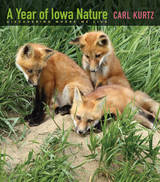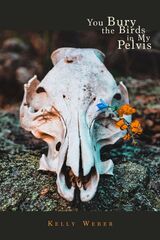853 books about Subjects & Themes and 3
start with Y
853 books about Subjects & Themes and 3
853 books about Subjects & Themes
3 start with Y start with Y
3 start with Y start with Y

Yaguareté White
Poems
Diego Báez
University of Arizona Press, 2024
In Diego Báez’s debut collection, Yaguareté White, English, Spanish, and Guaraní encounter each other through the elusive yet potent figure of the jaguar.
The son of a Paraguayan father and a mother from Pennsylvania, Báez grew up in central Illinois as one of the only brown kids on the block—but that didn’t keep him from feeling like a gringo on family visits to Paraguay. Exploring this contradiction as it weaves through experiences of language, self, and place, Báez revels in showing up the absurdities of empire and chafes at the limits of patrimony, but he always reserves his most trenchant irony for the gaze he turns on himself.
Notably, this raucous collection also wrestles with Guaraní, a state-recognized Indigenous language widely spoken in Paraguay. Guaraní both structures and punctures the book, surfacing in a sequence of jokes that double as poems, and introducing but leaving unresolved ambient questions about local histories of militarism, masculine bravado, and the outlook of the campos. Cutting across borders of every kind, Báez’s poems attempt to reconcile the incomplete, contradictory, and inconsistent experiences of a speaking self that resides between languages, nations, and generations.
Yaguareté White is a lyrical exploration of Paraguayan American identity and what it means to see through a colored whiteness in all of its tangled contradictions.
The son of a Paraguayan father and a mother from Pennsylvania, Báez grew up in central Illinois as one of the only brown kids on the block—but that didn’t keep him from feeling like a gringo on family visits to Paraguay. Exploring this contradiction as it weaves through experiences of language, self, and place, Báez revels in showing up the absurdities of empire and chafes at the limits of patrimony, but he always reserves his most trenchant irony for the gaze he turns on himself.
Notably, this raucous collection also wrestles with Guaraní, a state-recognized Indigenous language widely spoken in Paraguay. Guaraní both structures and punctures the book, surfacing in a sequence of jokes that double as poems, and introducing but leaving unresolved ambient questions about local histories of militarism, masculine bravado, and the outlook of the campos. Cutting across borders of every kind, Báez’s poems attempt to reconcile the incomplete, contradictory, and inconsistent experiences of a speaking self that resides between languages, nations, and generations.
Yaguareté White is a lyrical exploration of Paraguayan American identity and what it means to see through a colored whiteness in all of its tangled contradictions.
[more]

A Year of Iowa Nature
Discovering Where We Live
Carl Kurtz
University of Iowa Press, 2014
Every Sunday evening for almost ten years, Iowa photographer and naturalist Carl Kurtz has e-mailed a photo and an extended caption to hundreds of outdoor enthusiasts. Engaging and informative, the photos focus on the world around and away from his tallgrass prairie homeplace: snow buntings in a blizzard, maple leaves in fall, migrating snow geese and red-winged blackbirds and monarchs, prairie spiderworts in spring bloom, leopard frogs loafing on waterlily leaves, northern flickers feeding young, and all the inhabitants and moods of the passing seasons. Now, in A Year of Iowa Nature, he presents fifty-five of his favorite photos along with an evocative introduction that urges us to go forth and discover the beauty in our own backyards.
Concentrating on Iowa’s tallgrass prairie, Kurtz also points his viewfinder toward the great variety of natural habitats in the eastern United States. Arranged chronologically throughout the year, the fifty-five color photos and their accompanying narratives rotate through the seasons like a nature film. The winter months showcase a frost-covered white-tailed deer, cedar waxwings feeding on winter apples, a muskrat on the surface of an icy pond, and dune-like snowdrifts. Kurtz’s palette warms up in springtime with stunning photos of Virginia bluebells, fox cubs, juvenile chipmunks, and ruddy ducks. Summer brings a host of butterflies, frogs, and goldfinches as well as blooming prairie plants. The colors become more subdued in fall with the change in light, revealing the rich hues of Indian grass and big bluestem and the subtle plumage of migrating warblers.
Just as Kurtz’s Practical Guide to Prairie Reconstruction offers an indispensable manual for individuals and land managers working to create a diverse prairie community, so does A Year of Iowa Nature point the way toward a sincere, month-by-month appreciation of the natural world around us.
Concentrating on Iowa’s tallgrass prairie, Kurtz also points his viewfinder toward the great variety of natural habitats in the eastern United States. Arranged chronologically throughout the year, the fifty-five color photos and their accompanying narratives rotate through the seasons like a nature film. The winter months showcase a frost-covered white-tailed deer, cedar waxwings feeding on winter apples, a muskrat on the surface of an icy pond, and dune-like snowdrifts. Kurtz’s palette warms up in springtime with stunning photos of Virginia bluebells, fox cubs, juvenile chipmunks, and ruddy ducks. Summer brings a host of butterflies, frogs, and goldfinches as well as blooming prairie plants. The colors become more subdued in fall with the change in light, revealing the rich hues of Indian grass and big bluestem and the subtle plumage of migrating warblers.
Just as Kurtz’s Practical Guide to Prairie Reconstruction offers an indispensable manual for individuals and land managers working to create a diverse prairie community, so does A Year of Iowa Nature point the way toward a sincere, month-by-month appreciation of the natural world around us.
[more]

You Bury the Birds in My Pelvis
Kelly Weber
Omnidawn, 2023
Poems in a range of forms that consider the queer body, chronic illness, and love amid rural plains landscapes.
Set against a rural plains landscape of gas stations, wind, and roadkill bones littering the highways, You Bury the Birds in My Pelvis is a love letter to the nonbinary body as a site of both queer platonic intimacy and chronic illness. Looking at art and friendship, Kelly Weber’s poems imagine alternatives to x-rays, pathologizing medical settings, and other forms of harm. Considering the meeting place of radiological light and sunlit meadows, the asexual speaker’s body, and fox skeletons, these poems imagine possible forms of love. With the body caught in medical crisis and ecological catastrophe, Weber questions how to create a poetry fashioned both despite and out of endings.
You Bury the Birds in My Pelvis explores forms with plainspoken prose poems with a mix of short poems and longer lyric sections that navigate insurance systems and complicated rural relationships to queerness.
You Bury the Birds in My Pelvis is the winner of the 2022 Omnidawn 1st/2nd Poetry Book Contest, chosen by Mary Jo Bang.
Set against a rural plains landscape of gas stations, wind, and roadkill bones littering the highways, You Bury the Birds in My Pelvis is a love letter to the nonbinary body as a site of both queer platonic intimacy and chronic illness. Looking at art and friendship, Kelly Weber’s poems imagine alternatives to x-rays, pathologizing medical settings, and other forms of harm. Considering the meeting place of radiological light and sunlit meadows, the asexual speaker’s body, and fox skeletons, these poems imagine possible forms of love. With the body caught in medical crisis and ecological catastrophe, Weber questions how to create a poetry fashioned both despite and out of endings.
You Bury the Birds in My Pelvis explores forms with plainspoken prose poems with a mix of short poems and longer lyric sections that navigate insurance systems and complicated rural relationships to queerness.
You Bury the Birds in My Pelvis is the winner of the 2022 Omnidawn 1st/2nd Poetry Book Contest, chosen by Mary Jo Bang.
[more]
READERS
Browse our collection.
PUBLISHERS
See BiblioVault's publisher services.
STUDENT SERVICES
Files for college accessibility offices.
UChicago Accessibility Resources
home | accessibility | search | about | contact us
BiblioVault ® 2001 - 2024
The University of Chicago Press









